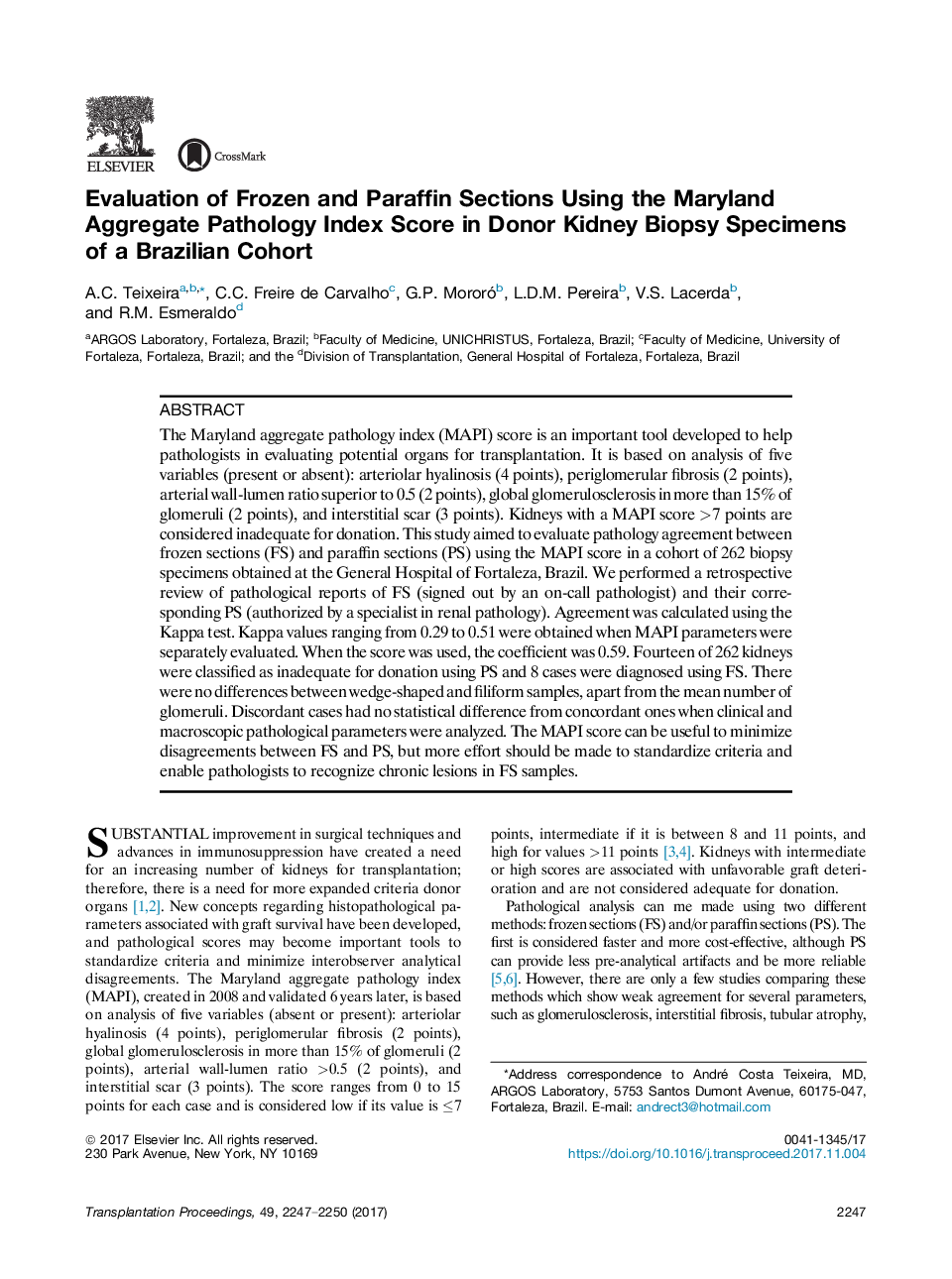| Article ID | Journal | Published Year | Pages | File Type |
|---|---|---|---|---|
| 8827460 | Transplantation Proceedings | 2017 | 4 Pages |
Abstract
The Maryland aggregate pathology index (MAPI) score is an important tool developed to help pathologists in evaluating potential organs for transplantation. It is based on analysis of five variables (present or absent): arteriolar hyalinosis (4 points), periglomerular fibrosis (2 points), arterial wall-lumen ratio superior to 0.5 (2 points), global glomerulosclerosis in more than 15% of glomeruli (2 points), and interstitial scar (3 points). Kidneys with a MAPI score >7 points are considered inadequate for donation. This study aimed to evaluate pathology agreement between frozen sections (FS) and paraffin sections (PS) using the MAPI score in a cohort of 262 biopsy specimens obtained at the General Hospital of Fortaleza, Brazil. We performed a retrospective review of pathological reports of FS (signed out by an on-call pathologist) and their corresponding PS (authorized by a specialist in renal pathology). Agreement was calculated using the Kappa test. Kappa values ranging from 0.29 to 0.51 were obtained when MAPI parameters were separately evaluated. When the score was used, the coefficient was 0.59. Fourteen of 262 kidneys were classified as inadequate for donation using PS and 8 cases were diagnosed using FS. There were no differences between wedge-shaped and filiform samples, apart from the mean number of glomeruli. Discordant cases had no statistical difference from concordant ones when clinical and macroscopic pathological parameters were analyzed. The MAPI score can be useful to minimize disagreements between FS and PS, but more effort should be made to standardize criteria and enable pathologists to recognize chronic lesions in FS samples.
Related Topics
Health Sciences
Medicine and Dentistry
Surgery
Authors
A.C. Teixeira, C.C. Freire de Carvalho, G.P. Mororó, L.D.M. Pereira, V.S. Lacerda, R.M. Esmeraldo,
